
Muslim Athan Five Pillars of Islam in Relation with Spiritual and
Chapter 7: The Pillars of Islam. Prophet Muhammad (S) The Holy Prophet Muhammad (S) was born in Mecca in the month of Rabiul Awwal in the Year of the Elephant 570 A.D. (fifty-three years before the beginning of the Hegira calendar). He was born amidst the family of Banu Hashim of the tribe of Quraysh, who were considered the most honoured of.
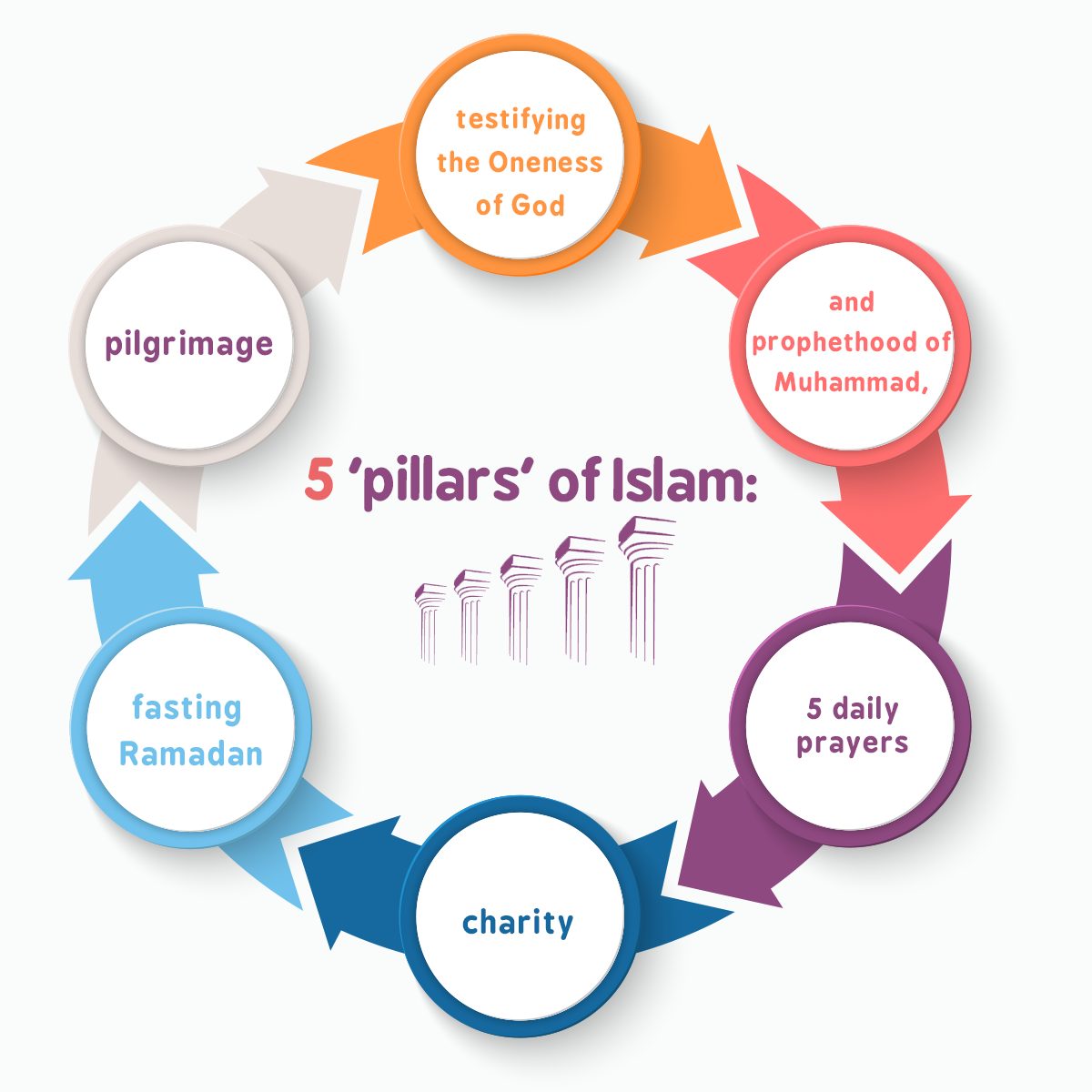
Five Pillars in Islam Arkan Islam Mishkah Academy
Dr. Warren Larson. Islam's seven articles of faith (some say six) can be grouped into three categories: Apostleship, Unity, and Judgment. How Muslims practice their faith (the five pillars) is informed by the following seven beliefs. 1.

5 Pillars Of Islam Pillars of islam, Islam lesson, Islam
The five pillars of Islam (arkan al-Islam; also arkan al-din, "pillars of religion") comprise five official acts considered obligatory for all Muslims. The Quran presents them as a framework for worship and a sign of commitment to faith. The five pillars are the shahadah (witnessing the oneness of God and the prophethood of Muhammad.

Pillars of Islam Questions on Islam
The previous hadith addressed all seven articles of Iman (faith). Belief in Allah. Belief in His Prophets. Belief in His Books. Belief in His Angels. Belief in the Unseen. Belief in the Resurrection. Belief in the Qadar (Divine Decree) Allah has mentioned five of the components of Iman in Surah Al-Baqarah, verse: 177.

The Five Pillars of Islam
Day 2 of our Understanding Islam series. There are five pillars - or basic tenets - of Islamic faith. Each of these pillars is an important part of being Muslim.
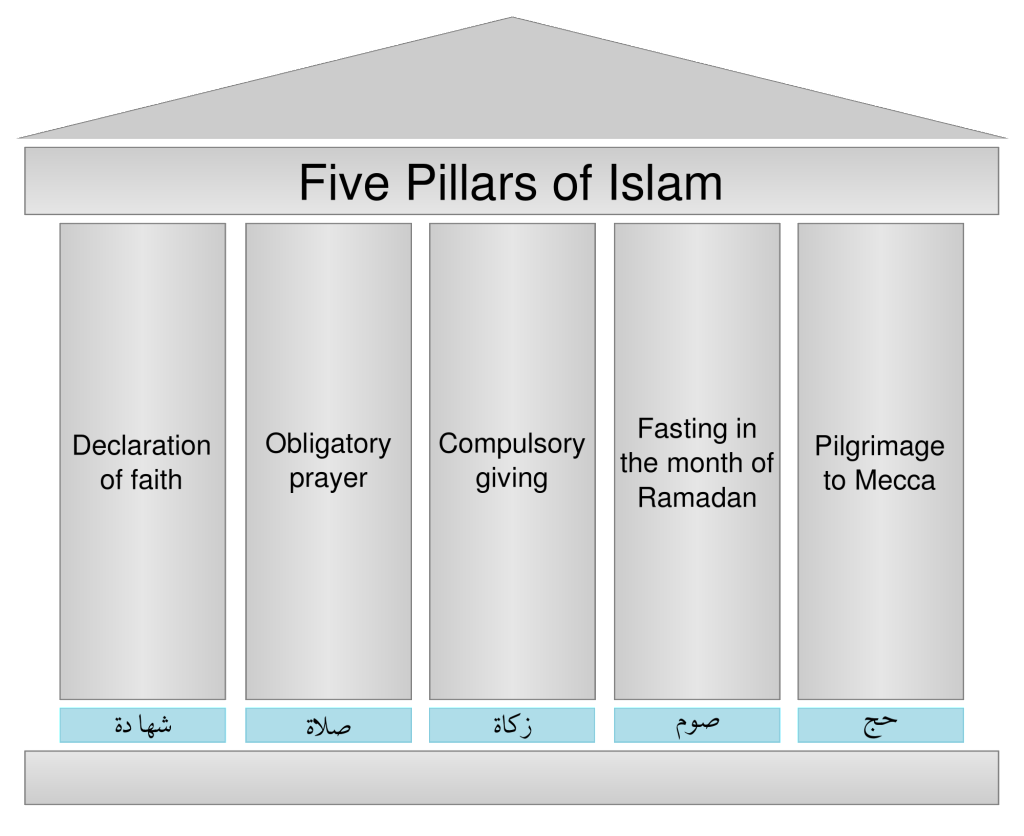
AlQuran The Five Pillars Of Islam
The Seven Pillars of Islam (also known as the Seven Fundamental Beliefs of Islam) are seven basic beliefs held by Muslims. 16/12/2022 08:00 589. Here is a more detailed explanation of each of the Seven Fundamental Beliefs of Islam: 1.
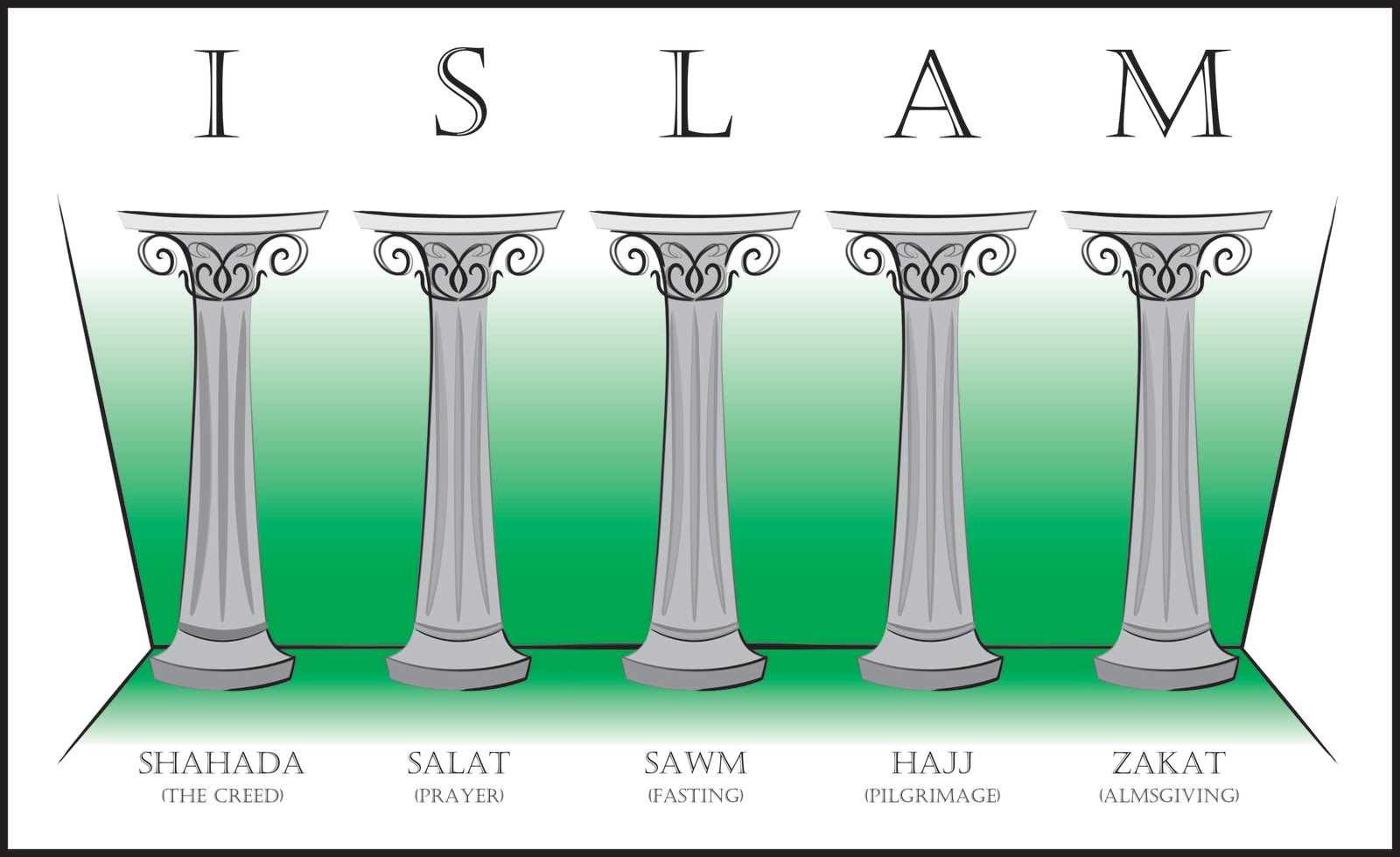
The Five Pillars of Islam
Almost as soon as the Arab armies of Islam conquered new lands, they began erecting mosques and palaces and commissioning other works of art as expressions of their faith and culture. Many aspects of religious practice in Islam also emerged and were codified. The religious practice of Islam, which literally means "to submit to God", is based on tenets that are known as the Five Pillars (arkan.
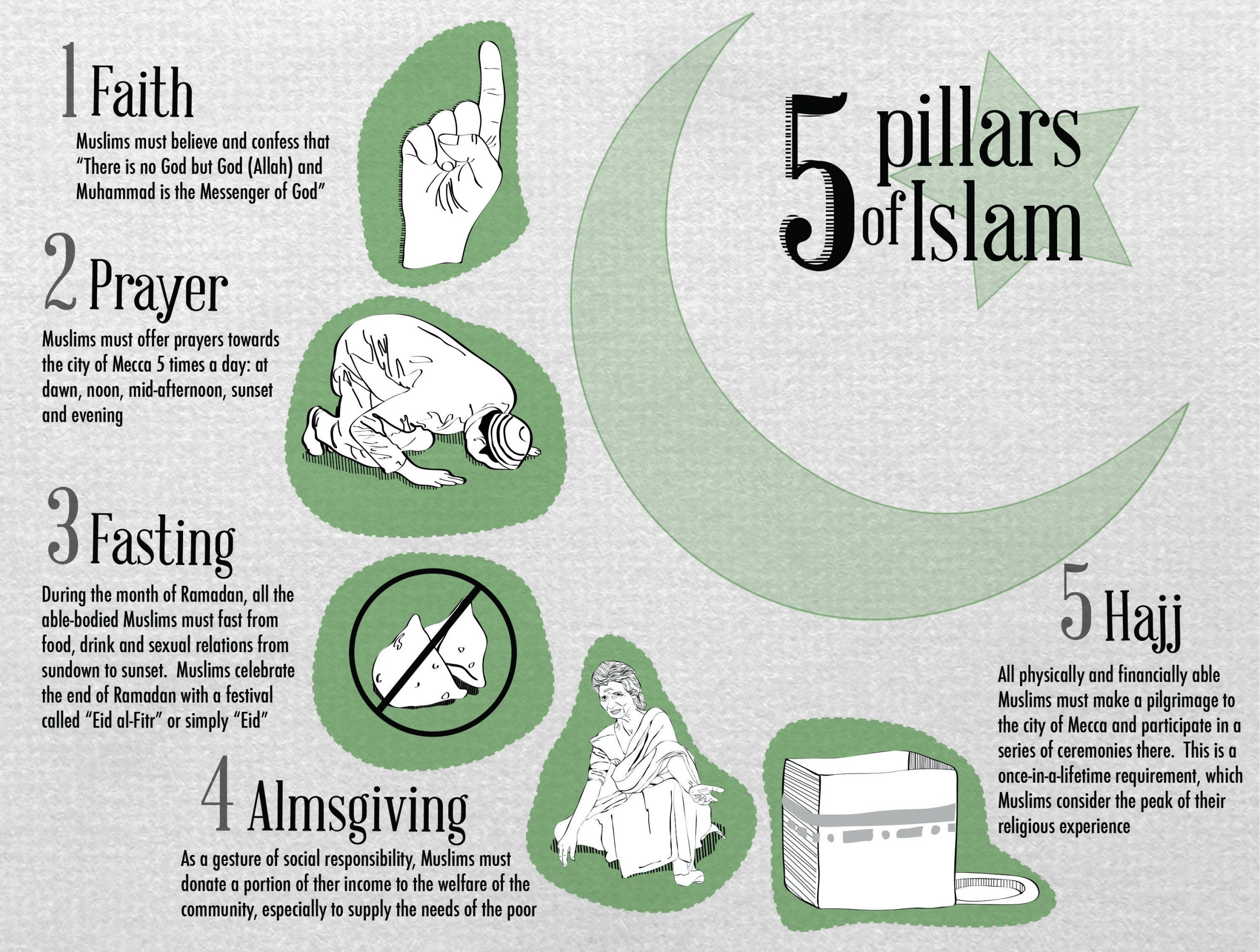
Pillars of Islam PALOS ISLAMIC CENTER
Druze list. The ordering of the pillars as understood by Druze is as follows: Taslīm "submission" denotes love and devotion to God, the prophets, the Imām ( al-Hakīm) and the du'āt "missionaries". In Ismā'īlī doctrine, God is the true desire of every soul, and he manifests himself in the forms of prophets and imāms; the appointed du.

What are the 7 Pillars of Islam Hanzala Chaudhary Blog
Islam is the second largest religion in the world after Christianity, with about 1.8 billion Muslims worldwide. Although its roots go back further, scholars typically date the creation of Islam to.
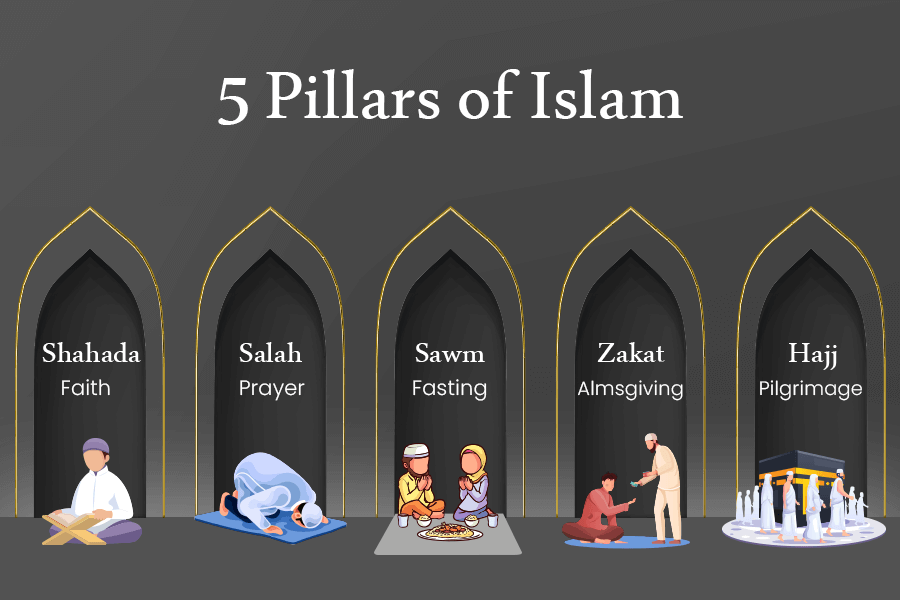
The 6 pillars of islam. Six Articles of Muslim Faith and Five Pillars
7 pillars of Islam. Salah. In the time of Tanzil or Shari`ah, according to Sayyidna Nasir al-Din Tusi in his book "Rawzatu't-Taslim", obedience is performed within the confines of set timings and worship is immersed in fixed timings (i.e., five times a day), but

Five Pillars of Islam hubpages
The 7 pillars of Islam are: 1. Shahada: The declaration of faith, which is the belief in the oneness of God and the belief that Muhammad is the prophet of God.. 2. Salah: The performance of the five daily prayers, obligatory for all adult Muslims and performed at specific times throughout the day.

a blog about illustrated guide of lessons in islam, learn islam
The "five pillars of Islam" are religious duties that provide a framework for a Muslim's life. These duties are performed regularly and encompass duties to God, to personal spiritual growth, to care for the poor, self-discipline, and sacrifice. In Arabic, "arkan" (pillars) provide structure and hold something steadily in place.
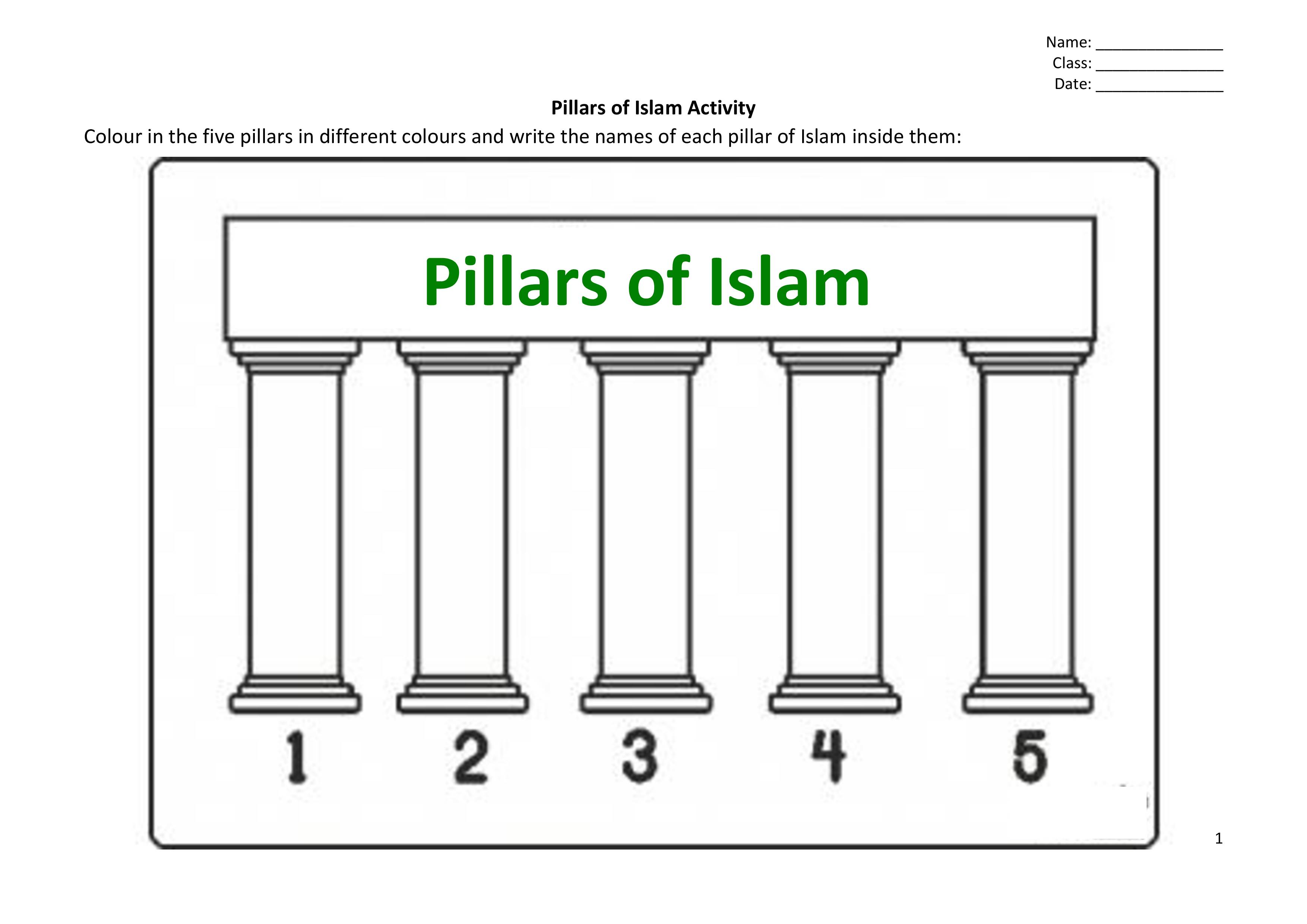
Pillars of Islam Activity An Nasihah Publications
The Five Pillars are the core beliefs and practices of Islam: Profession of Faith (shahada). The belief that "There is no god but God, and Muhammad is the Messenger of God" is central to Islam. This phrase, written in Arabic, is often prominently featured in architecture and a range of objects, including the Qur'an, Islam's holy book of divine.

The Five Pillars Of Islam
The Five Pillars of Islam are the five obligations that every Muslim must satisfy in order to live a good and responsible life according to Islam. The Five Pillars consist of: Shahadah: sincerely.

Islam 7
The Five Pillars of Islam (arkān al-Islām أركان الإسلام; also arkān ad-dīn أركان الدين "pillars of the religion") are fundamental practices in Islam, considered to be obligatory acts of worship for all Muslims. They are summarized in the hadith of Gabriel. The Sunni and Shia agree on the basic details of the performance and practice of these acts, but the Shia do not.
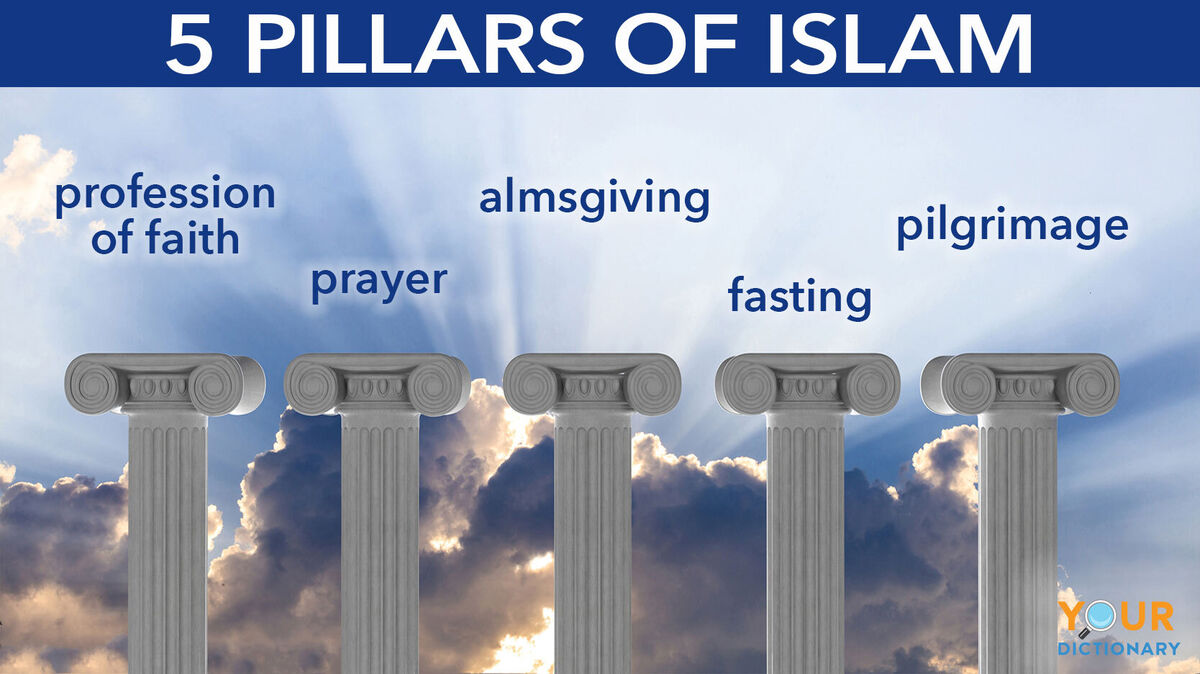
What Are the 5 Pillars of Islam? Core Beliefs and Practices
1. Monotheism: The Oneness of Allah (Tawhid) Allah, or God, is the center of Muslim belief. Whereas certain religions focus on individuals, like Christianity focuses on Jesus (peace be upon him), Islam focuses solely on Allah. Although Muslims respect the divine prophets, the prophets - including Prophet Muhammad (S) - are still only servants of Allah. The Qur'an itself speaks of the oneness.